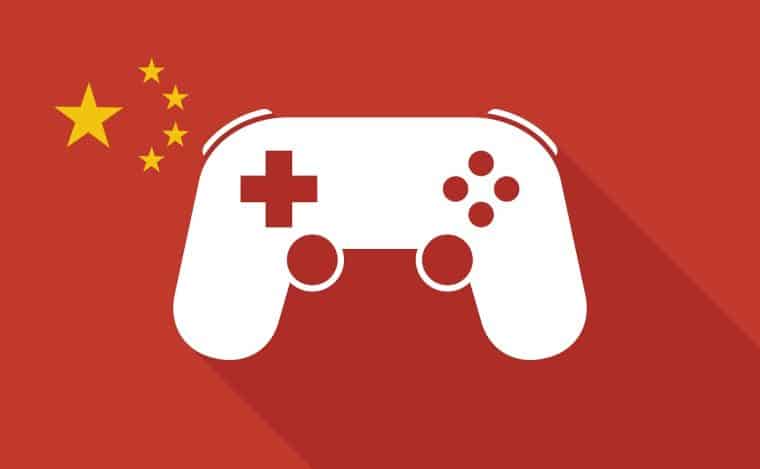
In a significant move on Monday, China’s online gaming regulator, The National Press and Publication Administration (NPPA), lifted an ongoing video game ban and granted licenses to 27 foreign games, marking a reopening of the world’s largest mobile entertainment market to international titles.
This includes games to be published by Tencent Holdings, NetEase Inc, and Bilibili Inc. and is the second batch of foreign games allowed to enter the Chinese market since December 2022, when the video game ban was partially lifted.
Among the newly approved titles are “Seven Deadly Sins: Grand Cross” from South Korea’s Netmarble, and “Merge Mansion” by Finland’s Metacore. Other Chinese publishers on the list include XD, Yostar, and iDreamSky Technology.
Stocks Soar as China’s Video Game Ban Eases
Following the announcement, online game stocks surged in Asia. South Korea’s Netmarble Corp shares rose by 7% and are currently trading at 62.400 KRW or $47,82. Devsisters Corp, whose hit game “Cookie Run” was included on the NPPA’s list, soared by 15% to reach a share price of 49.550 KRW. In Hong Kong, Bilibili’s shares increased by up to 9.1%.
Shares in Korean gaming companies surged after Chinese authorities approved more imported titles in the latest sign of their easing grip on the video-game sector https://t.co/XMEzVNBAjB
— Bloomberg (@business) March 21, 2023
“The move implies a more supportive regulatory policy towards foreign titles that further support a healthier and normalized development of the online gaming industry going forward,” said Alicia Yap, an analyst at Citigroup Inc. “We expect there could be two to three more imported batches in 2023, bringing total imported titles to 100 to 120.”
Navigating China’s Strict Gaming Regulations
China, as the world’s largest gaming market, has been extremely strict towards the video game industry in recent years, with the video game ban being a prime example.
Video games in China undergo a strict evaluation and approval process by regulatory authorities to determine their appropriateness for the Chinese audience. Due to the stringent nature of this process, numerous games have been unable to secure licenses.
In recent years, there has been a gradual decrease in the number of video games that were granted licenses with 180 greenlit projects in 2019, 97 in 2020, and 76 in 2021.
In 2021, new rules regarding gaming addiction were also introduced, limiting the number of hours minors could play video games to three hours per week, further tightening the video game ban.
As part of the crackdown, the regulatory agency’s usual process of issuing licenses for new video games every month came to a halt in August 2021, when Chinese authorities suspended the licensing of new games.
Taking a step back from the restrictions in 2022, NPPA partially resumed granting new licenses for homegrown games in April and then proceeded to ease the video game ban on foreign titles in December.
NPPA’s decision this week came two months after the iconic “World of Warcraft” franchise went offline in mainland China due to licensing disagreements between Blizzard and NetEase, leaving many Chinese players devastated in the midst of the ongoing video game ban.
Will be interesting to see how reveal season will go this time around as this is the first time we've had an expansion launch since Blizzard and Netease had their agreement expire. The Chinese community is typically a huge part of each reveal season, would suck to see that end.
— Zeddy (@ZeddyHS) March 14, 2023
Power-Up for the Gaming Industry, but Challenges Remain
The NPPA lifted the video game ban on domestic titles in April 2022, signaling a potential easing of Beijing’s tech crackdown. However, it wasn’t until December that foreign games were allowed access to the Chinese market, when the regulator approved 45 foreign titles, including “Pokémon Unite” by Nintendo and “Valorant” by” Riot Games.
While China has resumed license approvals for video games, the country’s strict new regulatory environment and gaming content censorship still restrict foreign games from freely entering the market.
Despite the easing pressure on the video game ban, the Chinese government’s restrictive approach towards gaming, in general, will no doubt continue to impact the market.
In April 2022, for example, China announced that the livestreaming of unauthorized video games would be banned as part of its broad crackdown on the gaming industry.
Following the government-issued restrictions, in January 2022, Chinese video platform Bilibili announced that it would ban live-streaming of more than 60 video games, including the popular Grand Theft Auto (GTA) series and The Witcher 3, to comply with regulatory guidelines.
While the video game ban’s recent lift marks a positive development for the global gaming industry, experts predict that these and other restrictions may force foreign companies to continue to limit their China ambitions despite the market’s growth potential.
The ongoing regulatory environment and content censorship in China simply pose too much of a challenge for many foreign game developers and publishers looking to expand wholeheartedly into the world’s largest gaming market.
With the expectation of more imported titles being granted access to the Chinese market in the coming years, however, the global gaming community will simply have to wait and see how this dynamic market unfolds and impacts the industry worldwide.
Related:
- Wingtra Drone-Based Mapping System Secures $22m Series B Funding for Expansion
- Securedverse is Ready to Revolutionize GameFi With A Full-Fledged AAA First-Person Shooter
Wall Street Memes (WSM) - Newest Meme Coin
- Community of 1 Million Followers
- Experienced NFT Project Founders
- Listed On OKX
- Staking Rewards